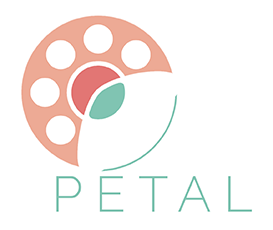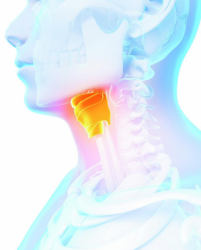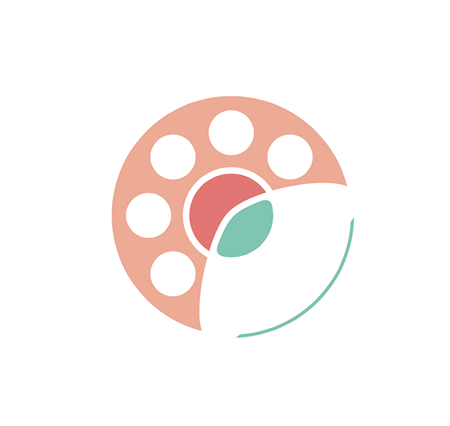

LARYNGECTOMY.NET
Why a
Therapeutic
Education
Programme with the objective of improving the quality of life of
Caregivers
and laryngectomees
Arguments

Therapeutic education is a therapeutic entity on its own. It is defined as follows:
“Therapeutic patient education aims at helping patients to acquire or maintain the skills they need to manage their life with a chronic disease as best as possible”, by the World Health Organisation.
Its practice is supervised and regulated in France in 2007, by the French National Authority for Health (HAS), which published a set of documents concerning the definition, methods and purpose of therapeutic education.
Laryngectomy, irrespective of whether it is followed by radiation therapy and/or chemotherapy or not, has a curative purpose. The objective of the surgery is simple: carry out a complete excision of the tumour, with the objective of curing the cancer patient. In this respect, UADT cancers treated by total laryngectomy do not correspond strictly speaking to chronic diseases.
However, this surgery is mutilating and results in sequels that definitively modify vital functions: breathing, deglutition and phonation. In this respect, the patient must live chronically with the sequels of the disease, adapt him/herself to a new anatomy, and acquire new skills.
Hence, among the self-care objectives defined by the HAS in its recommendations, the following concern laryngectomised patients directly:
– Perform technical procedures and treatments,
– Implement modifications to his/her lifestyle,
– Prevent avoidable complications,
– Face the problems resulting from the disease,
– Involve the family circle in the management of the disease, treatments and their impact.
The apparent sequels of the surgery are also important, with a major psychological impact. The presence of the tracheostoma in a visible zone, in the middle of the neck, in addition to the considerable modification of the voice, are two factors that strongly disturb the self-image, and undermine the communication and coping skills of the patient. Furthermore, the impact and the sequels of the surgery are not limited to the patient, but also affect the patient’s family in their daily life.
Hence, the coping objectives defined by the HAS concern all laryngectomised patients:
– Knowing how to deal with emotions and manage stress,
– Developing creative reasoning and critical thinking,
– Developing skills in terms of communication and inter-personal relationships,
– Making decisions and solving problems,
– Setting objectives to be attained and making choices,
– Self-observation, evaluation and reinforcement.
Furthermore, the 2013-2019 a cancer plan clearly justified and recommended patient therapeutic education in oncology, through action 3.3: “Involve the patient by developing therapeutic education in oncology”.
Even if total laryngectomy is not actually a chronic disease, it is still an operation that modifies in a permanent and definitive manner vital functions, self-image and self-esteem. In this respect, it comes fully within the framework of therapeutic education.
Browsing through the literature and statistics of Regional Health Agencies (ARS) rapidly reveals the therapeutic education of patients and their families is still under-developed in the field of oncology, particular in upper aerodigestive tract oncology.
Thus, a recent study in 2014, carried out in the Picardy region revealed a clear under-representation of therapeutic education programmes concerning cancer patients, even though oncology has been made a regional priority.
The numbers found in the data published by the ARS confirm this fact. For instance, among the 692 TPE programmes authorised by the ARS Ile de France in 2015, only 18 programmes (i.e. 0.03%) were dedicated to oncology, and only 1 to patients with UADT cancer.
In view of the need of a quality therapeutic education in laryngectomised patients and caregivers, and its current absence, Pr Emmanuel Babin, head of the surgery unit at Caen University Hospital in charge of ENT oncology, decided to organise in collaboration with INSERM Unit 1086 Cancer and prevention, with the team at the François Baclesse centre and his own team, a Therapeutic Education Programme with the objective of improving the quality of life of Caregivers and Laryngectomees.
This project was made possible by funding from the Institut National du Cancer (INCA), within the framework of 2012 N° 12-220.
